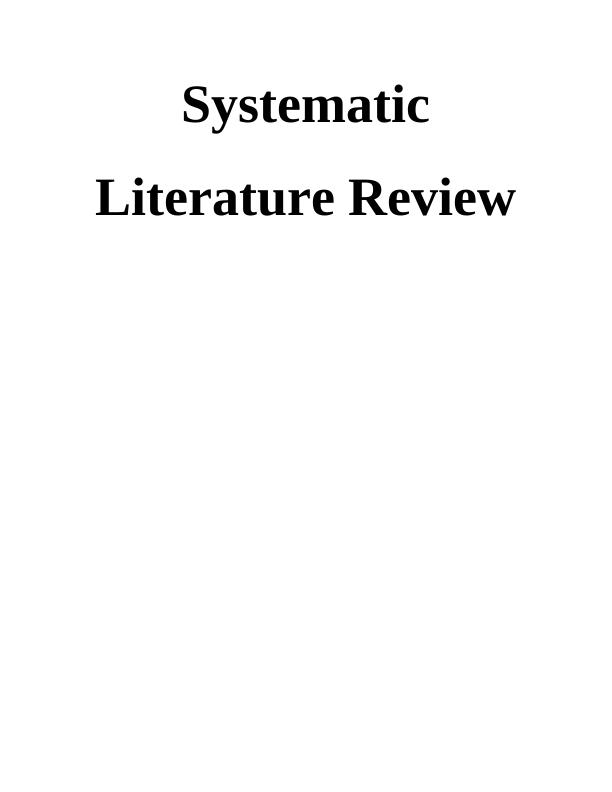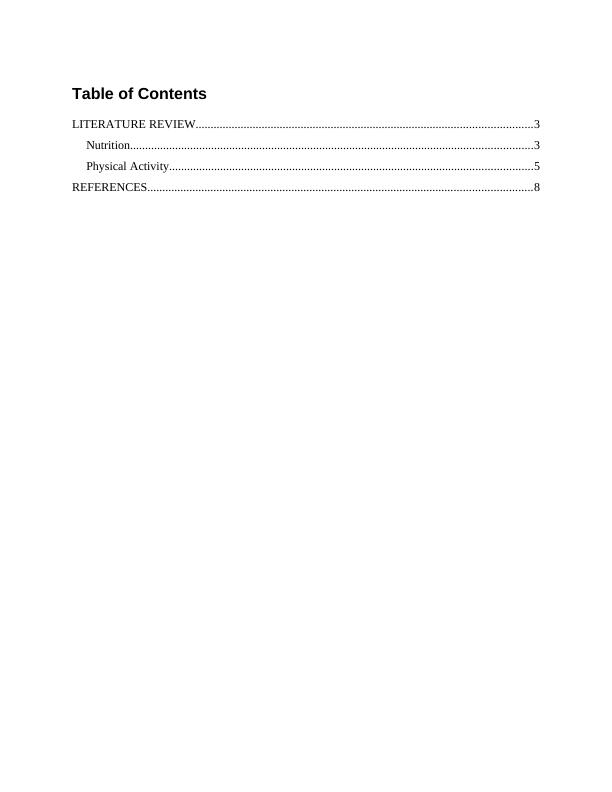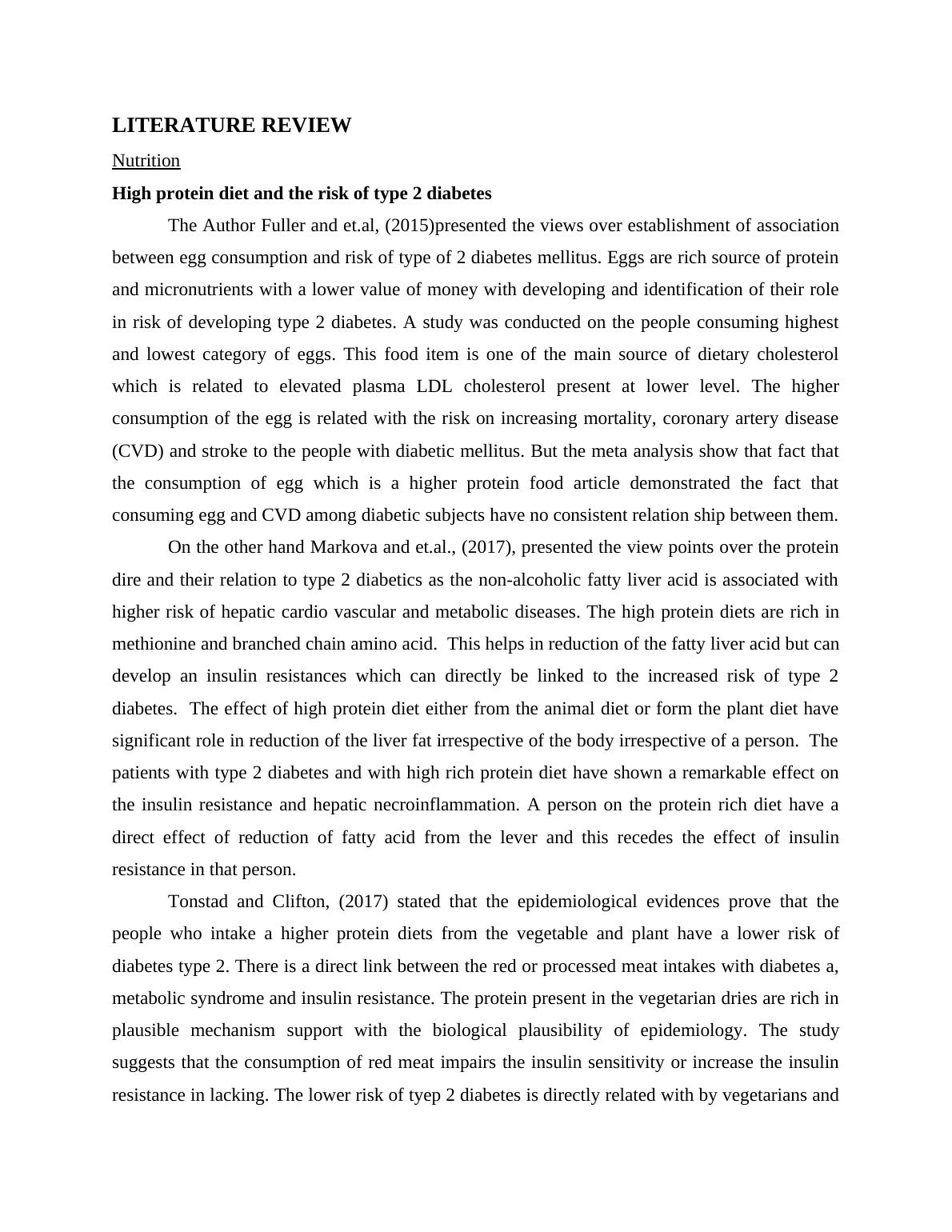Systematic Literature Review
Added on 2020-10-05
9 Pages2668 Words364 Views
SystematicLiterature Review

Table of ContentsLITERATURE REVIEW................................................................................................................3Nutrition......................................................................................................................................3Physical Activity.........................................................................................................................5REFERENCES................................................................................................................................8

LITERATURE REVIEWNutritionHigh protein diet and the risk of type 2 diabetesThe Author Fuller and et.al, (2015)presented the views over establishment of associationbetween egg consumption and risk of type of 2 diabetes mellitus. Eggs are rich source of proteinand micronutrients with a lower value of money with developing and identification of their rolein risk of developing type 2 diabetes. A study was conducted on the people consuming highestand lowest category of eggs. This food item is one of the main source of dietary cholesterolwhich is related to elevated plasma LDL cholesterol present at lower level. The higherconsumption of the egg is related with the risk on increasing mortality, coronary artery disease(CVD) and stroke to the people with diabetic mellitus. But the meta analysis show that fact thatthe consumption of egg which is a higher protein food article demonstrated the fact thatconsuming egg and CVD among diabetic subjects have no consistent relation ship between them.On the other hand Markova and et.al., (2017), presented the view points over the proteindire and their relation to type 2 diabetics as the non-alcoholic fatty liver acid is associated withhigher risk of hepatic cardio vascular and metabolic diseases. The high protein diets are rich inmethionine and branched chain amino acid. This helps in reduction of the fatty liver acid but candevelop an insulin resistances which can directly be linked to the increased risk of type 2diabetes. The effect of high protein diet either from the animal diet or form the plant diet havesignificant role in reduction of the liver fat irrespective of the body irrespective of a person. Thepatients with type 2 diabetes and with high rich protein diet have shown a remarkable effect onthe insulin resistance and hepatic necroinflammation. A person on the protein rich diet have adirect effect of reduction of fatty acid from the lever and this recedes the effect of insulinresistance in that person.Tonstad and Clifton, (2017) stated that the epidemiological evidences prove that thepeople who intake a higher protein diets from the vegetable and plant have a lower risk ofdiabetes type 2. There is a direct link between the red or processed meat intakes with diabetes a,metabolic syndrome and insulin resistance. The protein present in the vegetarian dries are rich inplausible mechanism support with the biological plausibility of epidemiology. The studysuggests that the consumption of red meat impairs the insulin sensitivity or increase the insulinresistance in lacking. The lower risk of tyep 2 diabetes is directly related with by vegetarians and

End of preview
Want to access all the pages? Upload your documents or become a member.
Related Documents
Non Alcoholic Fatty Liver Diseaselg...
|21
|5586
|60
Type 2 Diabetes Mellitus and Obesitylg...
|8
|3049
|103
Food Nutrition | Assignment-1lg...
|9
|1800
|12
Epidemiology Assignment 2022lg...
|8
|1929
|33
Sugar Consumption and Heart Disease: An Evidence-Based Analysislg...
|11
|2423
|92
Assessment D: Contemporary/Emerging Dietary Trend or Regimelg...
|11
|3207
|141
